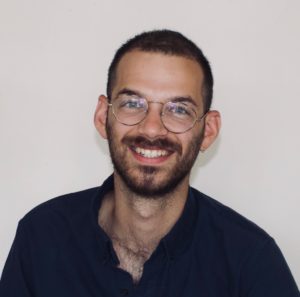
Nathan’s testimonial was originally published in the Clinic’s 2021 Annual Report:
I came to law school because I wanted to be able to use the law—both existing and as-yet unwritten—to promote a just transition to our clean energy future. More than any other single facet of law school, the Emmett Environmental Law & Policy Clinic has allowed me to pursue that goal. The opportunity to do supervised legal practice has helped me learn and develop as a lawyer, contribute to meaningful projects that make the world a better place, and carve a law school path that serves my personal and professional aspirations.
My first semester in the clinic, in the fall of 2020, I advised a California tribe on designing and implementing an on-grid/off-grid solar program that would connect Reservation homes to clean and reliable electricity. At first, I felt overwhelmed grappling by the intricacies of federal Indian law. But the degree of supervision I received through the Clinic–far exceeding anything I’ve experienced in previous jobs or internships–allowed me to parse out the important legal issues. More than that, my supervisors pushed me to step past my inclination to treat the world like an issue spotter, stopping after I had identified the issues and analyzed potential risk, into the lawyer’s role of translating legal constraints into an actionable path forward.
During that semester, I mentioned my interest in climate policy and my disappointment that my law school courses hadn’t provided much insight into the lawyer’s role in legislative and regulatory processes. When a friend at a grassroots environmental advocacy organization asked me if I knew anyone who could help with the drafting of an environmental justice bill for introduction in the Rhode Island legislature, Shaun Goho supported me to package the project as a January Term advanced clinical.
And in the spring, when a Clinic project arose that was particularly well-tailored to my interest in energy regulation, Shaun, Aladdine Joroff, and Leah Cohen reached out and worked with me to structure the project to fit my schedule. This is a level of engagement with mentors and instructors that I have not found anywhere else at the law school. And again, this project gave me exposure to a different kind of advocacy than I saw in my doctrinal courses, writing a comment for a group of municipalities to guide equitable and orderly decarbonization of the gas heating sector in Massachusetts.
These experiences have been a uniquely affirming part of my law school education. The opportunity that the Clinic has provided to me to build substantive experience after quickly exhausting related doctrinal offerings has helped me to craft my own professional candidacy, stay grounded, and resist the pull of the law school current when I’ve felt stressed about grades or prestigious extra-curriculars. The Clinic has empowered me to create the law school experience I came here to pursue. I feel extraordinarily fortunate to have found it.
